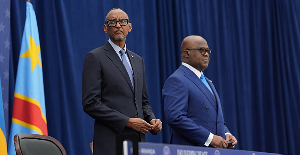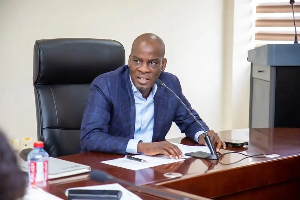A group of 10 Eritrean soccer players have been granted asylum in Botswana after traveling there for a World Cup qualifying match earlier this month, and refusing to return home to a country that is often referred to as Africa’s North Korea.
The latest crew of soccer players from the Eritrean national team to defect from the East African nation and seek refuge abroad applied for asylum on October 14, a day after they declined to get on a plane that was headed back home.
Botswana’s decision to allow the team members to stay came from the country’s high court and was officially announced on Thursday by the Eritrean Movement for Democracy and Human Rights, the South Africa-based organization funding the legal fees for the men.
“We are grateful to the Botswana government and this decision shows its rule of law and due process are sound,” the organization’s Eyasu Hatemarian told Reuters.
While the decision was pending, the players spent the last two weeks in a holding center located in Francistown, where the soccer match was played. After the squad decided to stay in Botswana, their attorney Dick Bayford told Reuters there was concern the players would be hit with desertion charges if they were sent back because they are reportedly members of the Eritrean army.
Botswana’s defense minister had said the players should go back to their country, which has been accused by the UN human rights commissioner of systematic human rights violations, including forced labor and military conscription.
“The issue is simple: they must go back to their country. You don’t come here to play football, lose, then say you want political asylum. There are proper steps that should be followed if you want to be a refugee,” minister Shaw Kgathi told local radio station GabzFM.
This isn’t the first time members of the country’s soccer team have defected and sought asylum outside of Eritrea in recent years. A total of 50 players have fled Eritrea since 2009, when the country’s team refused to come back after a 2009 tournament in Kenya.
One of the more recent high-profile cases occurred in 2012 when the whole squad turned up at the United Nations’ refugee office in Kampala after playing in Uganda. They were ultimately granted asylum in the Netherlands.
Other sports in Eritrea are not immune to seeing their athletes defect. Runner Weynay Ghebresilasie sought asylum in the United Kingdom just after competing in the men’s marathon during the 2012 Olympic Games, where he carried the flag during the opening ceremony.
In addition to athletes, thousands of Eritreans have fled the country in recent years, with the number of people escaping on the rise. In 2014 more than 35,000 people fled to Europe, up from 13,000 the year before.
Eritrea has been under the microscope this year following the release of the UNHCR’s inquiry into the country in June, with the organization extending its investigation mandate until 2016. The extension was made to investigate what it called gross human rights abuses in Eritrea, some of which UNHCR said may qualify as crimes against humanity.
Sports News of Friday, 30 October 2015
Source: ghanasoccernet.com
Mass defection of Eritrean players to Botswana
Entertainment












